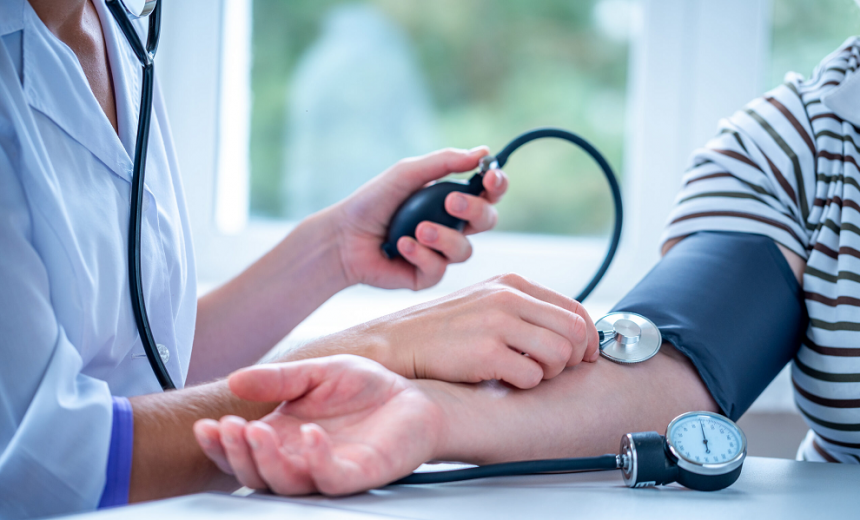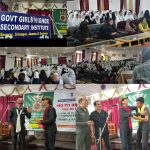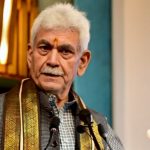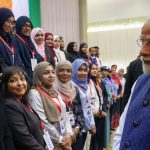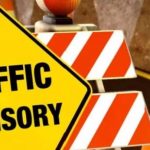High blood pressure or hypertension is often dubbed the “silent killer” because it typically presents with no obvious symptoms while quietly wreaking havoc on the body. It is a critical component of non-communicable diseases (NCDs), which pose significant health challenges globally.
The statistics paint a sobering picture. The National Family Health Survey-5 in India (2019-20) showed a prevalence of 21.3% for elevated blood pressure among females and 24% among males aged 15 years and above. Cardiovascular disease, largely driven by uncontrolled hypertension, remains the leading cause of death globally, claiming more lives than cancer, respiratory diseases, and accidents combined.
The Devastating Cascade of Uncontrolled Hypertension: The Silent Threat
Uncontrolled hypertension is a ticking bomb and can lead to a cascade of life-threatening complications. Among the most serious outcomes are:
- Stroke: High blood pressure can cause arteries in the brain to burst or become blocked, leading to strokes.
- Heart Disease: It strains the heart, increasing the risk of heart attacks, heart failure, and arrhythmias.
- Kidney Damage: Hypertension can damage blood vessels in the kidneys, leading to chronic kidney disease or kidney failure.
- Vision Loss: High pressure can damage the delicate blood vessels in the eyes, potentially leading to blindness.
- Cognitive Decline: Prolonged hypertension is linked with dementia and other cognitive impairments.
Why Are Indians Struggling with Medication Adherence?
Medication non-adherence, meaning not taking prescribed medications as directed, is a significant problem in hypertension management, leading to uncontrolled blood pressure, poor clinical outcomes, and increased healthcare costs.
Several factors contribute to this complex problem
- Lack of Symptoms: Because hypertension is often asymptomatic, patients may feel well and therefore believe they don’t need medication, or can stop taking it once their readings temporarily normalize.
- Cost of Medication: For many, particularly in rural areas or lower-income brackets, the long-term cost of daily medication can be a substantial burden.
- Side Effects: Some patients discontinue medication due to perceived or actual side effects without consulting their doctor.
- Forgetfulness and Complex Regimens: Remembering to take multiple pills at different times of the day can be challenging, especially for the elderly or those with busy lifestyles.
- Misinformation and Alternative Therapies: Belief in unproven remedies or advice from unqualified individuals can lead patients to abandon conventional medical treatment.
- Access to Healthcare: Limited access to regular medical check-ups and consultations, especially in remote areas, means patients may not receive adequate guidance and support for managing their condition.
- Low Health Literacy: A lack of understanding about the chronic nature of hypertension and the importance of continuous treatment plays a crucial role.
- Cultural Beliefs: Preference for home remedies and distrust of allopathic medicine is common in some regions.
Controlling Hypertension: A Call to Action
Managing hypertension is not just about popping pills. A multi-faceted approach ensures long-term control and a better quality of life. Here’s how individuals and healthcare systems can make a difference:
- Education and Counseling: Increasing public awareness through community health programs and media campaigns is vital.
- Regular Monitoring: Encouraging routine BP checks at home or local clinics helps catch irregularities early.
The theme for World Hypertension Day 2025 emphasizes on accurate measurement to addresses a fundamental challenge in hypertension management. The urgent message is clear: “Measure Your Blood Pressure Accurately, Control It, Live Longer.” It’s is not just a slogan, it’s an evidence-based promise.
When we measure blood pressure accurately, control it effectively through medication adherence and lifestyle modifications, and maintain that control over time, we can prevent the devastating complications of hypertension and help people live longer and healthier lives.
Medication is the Key
- Adherence: Take your prescribed medication exactly as your doctor instructs.
- Communicate with Your Doctor: Discuss any side effects or concerns you have.
- Set Reminders: Use pillboxes and phone alarms to help you remember to take your medication. Smartphone apps can remind patients to take medications, track blood pressure readings, and provide educational content.
- Refill Prescriptions on Time: Don’t wait until you’ve run out of pills.
Lifestyle Modifications – The Powerful Allies
- Healthy Diet: Reduce salt intake significantly. The DASH (Dietary Approaches to Stop Hypertension) diet, which emphasizes fruits, vegetables, whole grains, lean proteins, and low-fat dairy while limiting sodium, saturated fat, and added sugars, has been proven to lower blood pressure significantly.
- Regular Exercise: Aim for at least 150 minutes of moderate-intensity aerobic exercise per week, such as brisk walking, cycling, or swimming.
- Maintain a Healthy Weight: Losing even a small amount of weight can make a big difference in blood pressure.
- Limit Alcohol: Excessive alcohol consumption can raise blood pressure.
- Quit Smoking: Smoking damages blood vessels and raises blood pressure.
- Manage Stress: Practice stress-reducing techniques like yoga, meditation, or deep breathing exercises.
A Collective Responsibility
Tackling the challenge of hypertension and medication non-adherence requires a multi-pronged approach involving patients, healthcare providers, and policymakers. Increased awareness campaigns, better access to affordable medication, patient education, and support systems are crucial steps.
Workplace wellness programs that include blood pressure screening and management support can reduce healthcare costs while improving employee health and productivity. Telemedicine has made hypertension management more accessible, particularly for patients in rural areas or those with mobility limitations.
India’s National Programme for Prevention and Control of Non-Communicable Diseases (NP-NCD) is tackling hypertension (in addition to diabetes, cancer, and stroke) through free screening, treatment, and lifestyle counseling at Health and Wellness Centres at different levels of healthcare across the country.
With the help of trained frontline workers, the program is bringing blood pressure care closer to rural and underserved communities making early detection and adherence more accessible. This program ensures that people, even in rural areas, can get early diagnosis and proper treatment for these “silent” diseases.
The Bottom Line
Controlling hypertension isn’t just about following a doctor’s orders—it’s about protecting your heart, brain, kidneys, and future. With India on the cusp of a cardiovascular epidemic, tackling this threat could be one of the most effective public health interventions of our time.
Let’s not wait for a crisis to act. Control your blood pressure. Take control.
(The Author is Assistant Professor Community Medicine. GMC, Baramulla)




